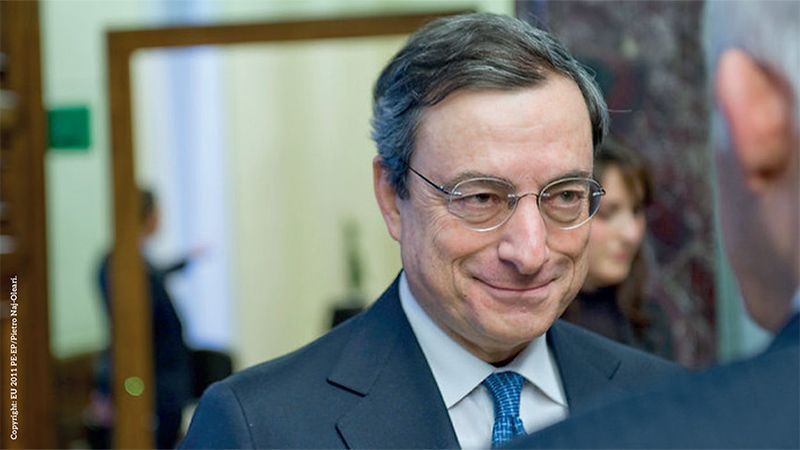A new report overseen by former European Central Bank (ECB) president Mario Draghi (pictured) has called for closer ties within the European Union (EU) in order to tackle an ‘existential challenge’ to the continent’s current form.
The report, titled The Future of European Competitiveness and available in two parts (Part A and Part B), states that the foundations on which European prosperity have been built are ‘now being shaken’. This, wrote Draghi, is illustrated by the wide gap in GDP that has opened between the EU and the US.
Draghi wrote: “[Since 2000], slowing growth has been seen as an inconvenience but not a calamity. Europe’s exporters managed to capture market shares in faster growing parts of the world, especially Asia. Many more women entered the workforce, lifting the labour contribution to growth. And, after the crises of 2008 to 2012, unemployment steadily fell across Europe, helping to reduce inequality and maintain social welfare.”
He added: “The EU also benefited from a favourable global environment. World trade burgeoned under multilateral rules. The safety of the US security umbrella freed up defence budgets to spend on other priorities. In a world of stable geopolitics, we had no reason to be concerned about rising dependencies on countries we expected to remain our friends.”
See also: IIGCC: Policy changes needed to stimulate European steel
Now, writes Draghi, the global paradigm is shifting with EU companies facing stiffer competition from abroad, reduced access to overseas markets, and the loss of its most important supplier of energy. This comes against a backdrop, he writes, of waning geopolitical stability.
To tackle this, Draghi writes that investment share on the continent will have to rise by around five percentage points of GDP. This, he said, will be at the same level as in the 1960s and 1970s.
He added: “If Europe cannot become more productive, we will be forced to choose. We will not be able to become, at once, a leader in new technologies, a beacon of climate responsibility and an independent player on the world stage. We will not be able to finance our social model. We will have to scale back some, if not all, of our ambitions. This is an existential challenge.”
Draghi outlined three areas in which to reignite growth: closing the innovation gap between itself, the US, and China; having a joint plan for decarbonisation and competitiveness; and increasing security and reducing dependencies.
Concurrently, there are three barriers to success, Draghi writes: a lack of focus, a wasting of common resources, and not coordinating on vital matters.
He concluded: “We should abandon the illusion that only procrastination can preserve consensus. In fact, procrastination has only produced slower growth, and it has certainly achieved no more consensus. We have reached the point where, without action, we will have to either compromise our welfare, our environment or our freedom.”







